5 Best Open-source CMS / Blog Platforms
A curated list of open source only cms / blog platforms, ranked based on relevancy and feature completeness as a cms / blog platform
Wordpress #1
A powerful, open-source CMS that lets users create customizable websites, from blogs to e-commerce stores, with extensive theme and plugin options
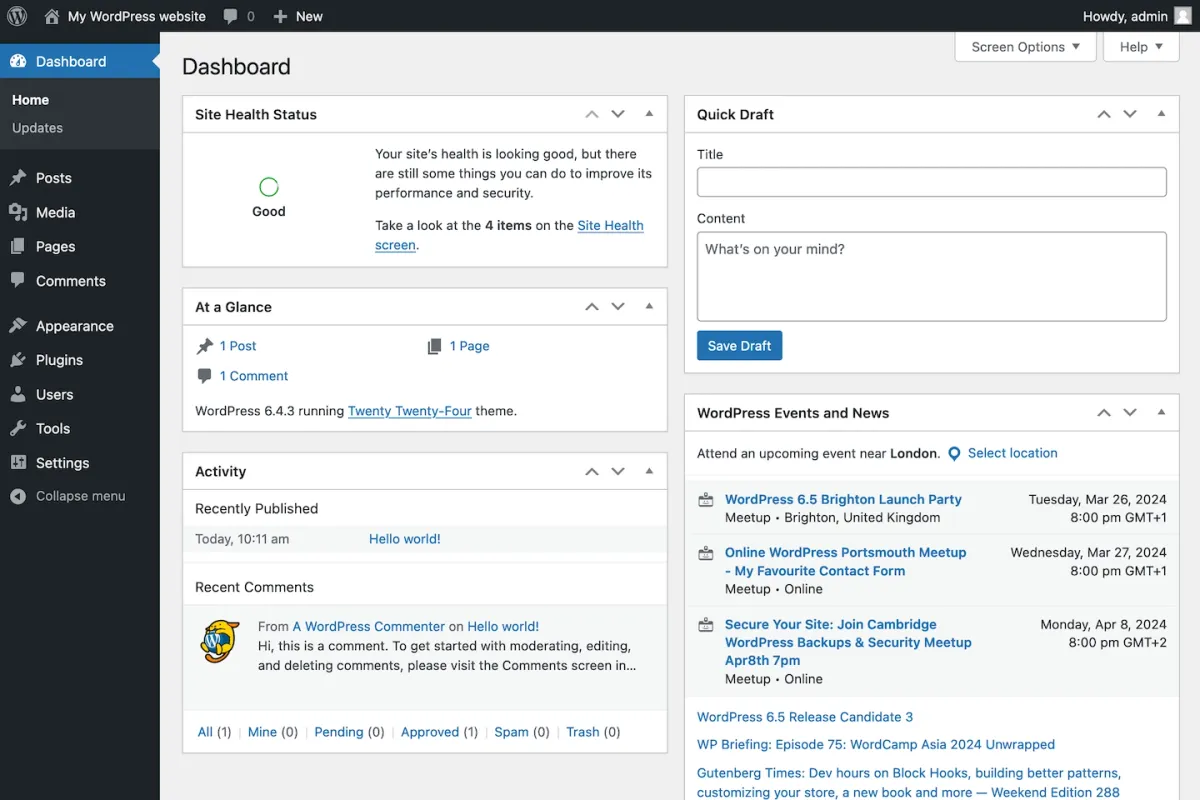
WordPress is a versatile content management system (CMS) that allows users to build and manage websites without needing extensive coding knowledge. With thousands of themes and plugins, it offers endless customization possibilities for creating anything from simple blogs to advanced online stores, all while supporting responsive design and SEO features.
- Blogging: Ideal for creating and managing personal or professional blogs.
- Business Websites: Perfect for small and large businesses needing a flexible website.
- E-commerce Sites: Build online stores with ease using plugins like WooCommerce.
Ghost #2
A streamlined, open-source CMS tailored for publishing, enabling users to create, manage, and monetize content with ease
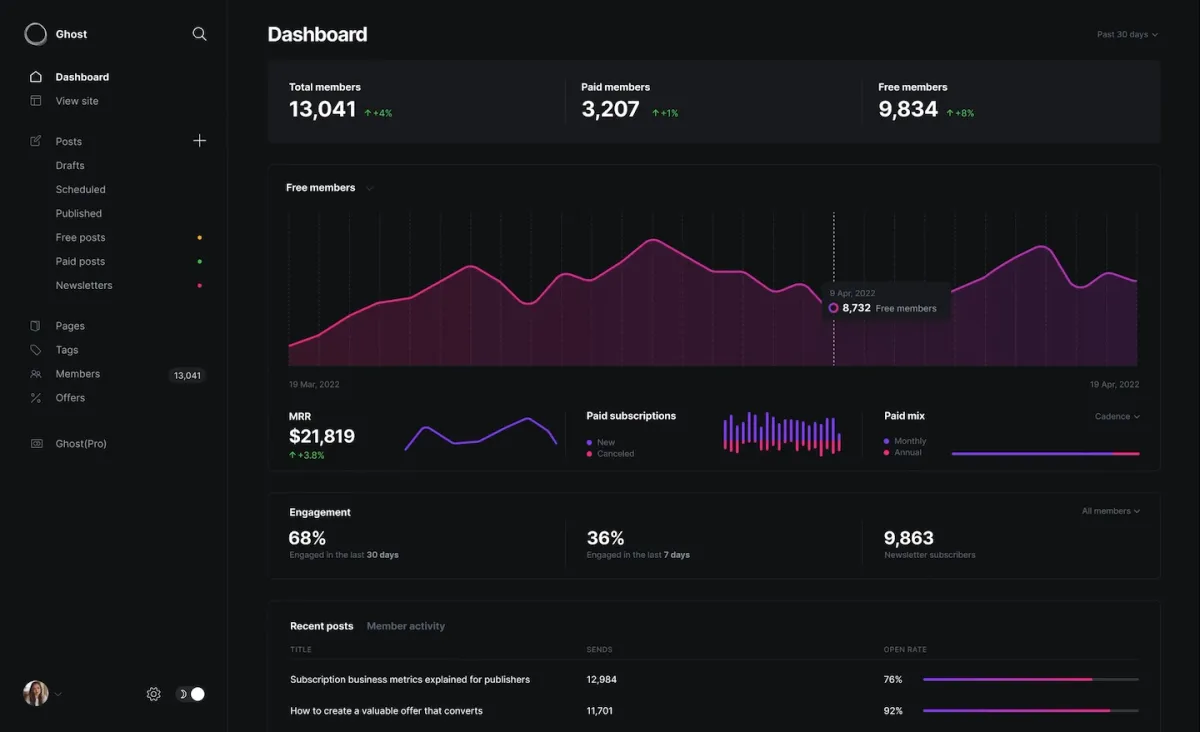
Ghost is a minimalist, open-source CMS designed specifically for publishing and blogging. Its clean interface and Markdown editor make content creation intuitive, while built-in SEO, AMP, and structured data support help improve search engine visibility. Ghost is especially popular among creators and businesses looking for a straightforward platform focused on content without unnecessary complexity.
- Professional Blogging: Ideal for writers and bloggers seeking a clean, distraction-free interface.
- Content Monetization: Great for creators who want to monetize with memberships and subscriptions.
- Newsletters and Email Marketing: Efficient for managing newsletters and sending content to subscribers.
OctoberCMS #3
A robust and adaptable CMS based on Laravel, designed for developers who want flexibility and control over their web projects without sacrificing simplicity and ease of use
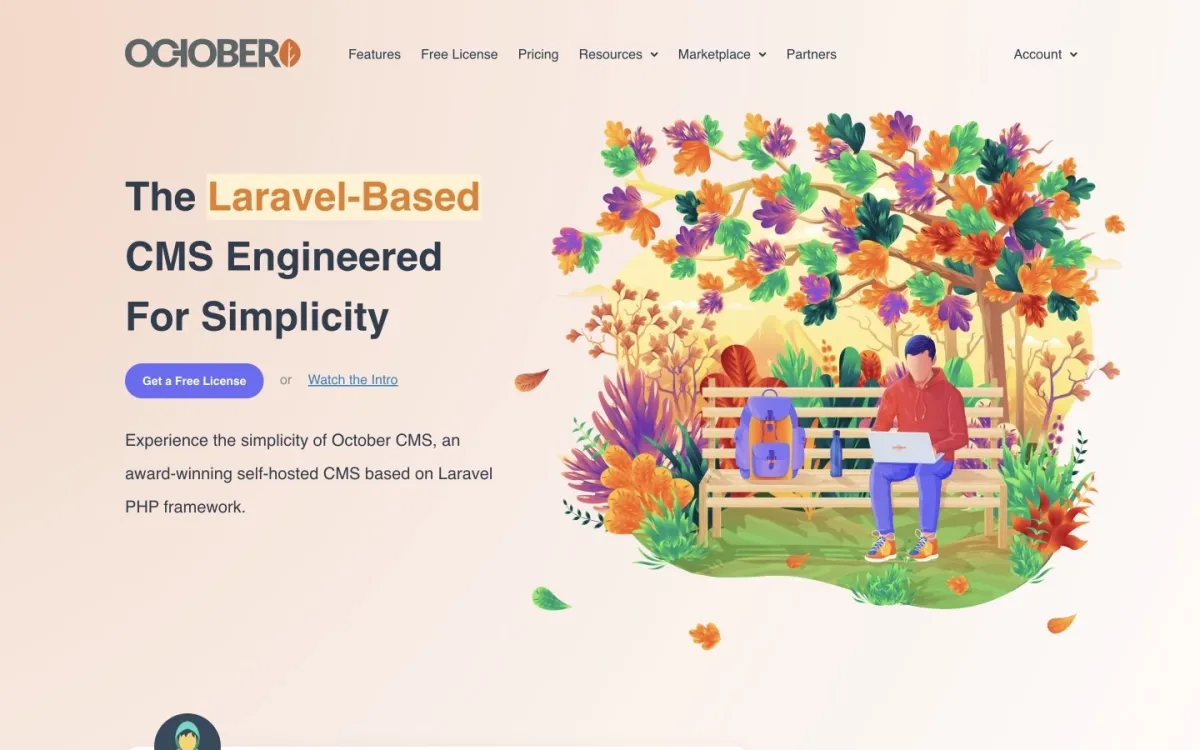
October CMS combines the power of Laravel with a user-friendly interface, offering a modular, self-hosted platform for building diverse web applications. Tailored for developers, it includes customizable plugins, themes, and advanced data management features, all designed for straightforward deployment and scalability. With October, developers can build websites from simple content-driven sites to complex, dynamic applications.
- Content-Driven Websites: Ideal for websites focused on rich content and frequent updates.
- Corporate Websites: Effective for company websites requiring scalability and customization.
- Ecommerce and Small Businesses: Supports small to medium eCommerce platforms with secure, customizable solutions.
Wagtail #4
A high-performance, open-source CMS built on Django, ideal for content-driven sites, offering both editors and developers a customizable, intuitive experience
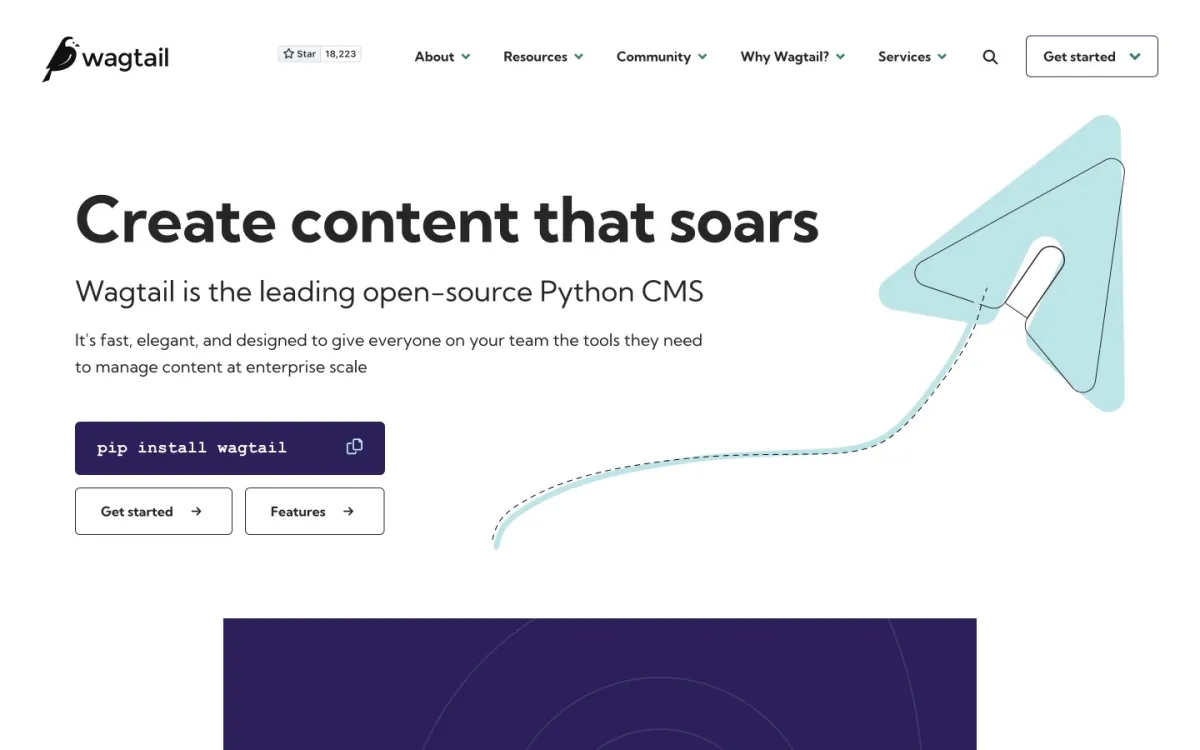
Wagtail provides a streamlined interface with a powerful, flexible StreamField editor, allowing teams to manage rich, complex content while enabling developers to leverage Python’s extensibility. It is well-suited for projects of any scale, supporting both traditional and headless CMS setups to meet diverse needs.
- Enterprise Websites: Scales efficiently for large, content-heavy sites.
- Corporate Platforms: Flexible management for internal and external sites.
- Educational Institutions: Ideal for universities and learning platforms.
Drupal #5
A versatile content management system enabling organizations to create, manage, and deliver content for diverse web applications with scalability and security
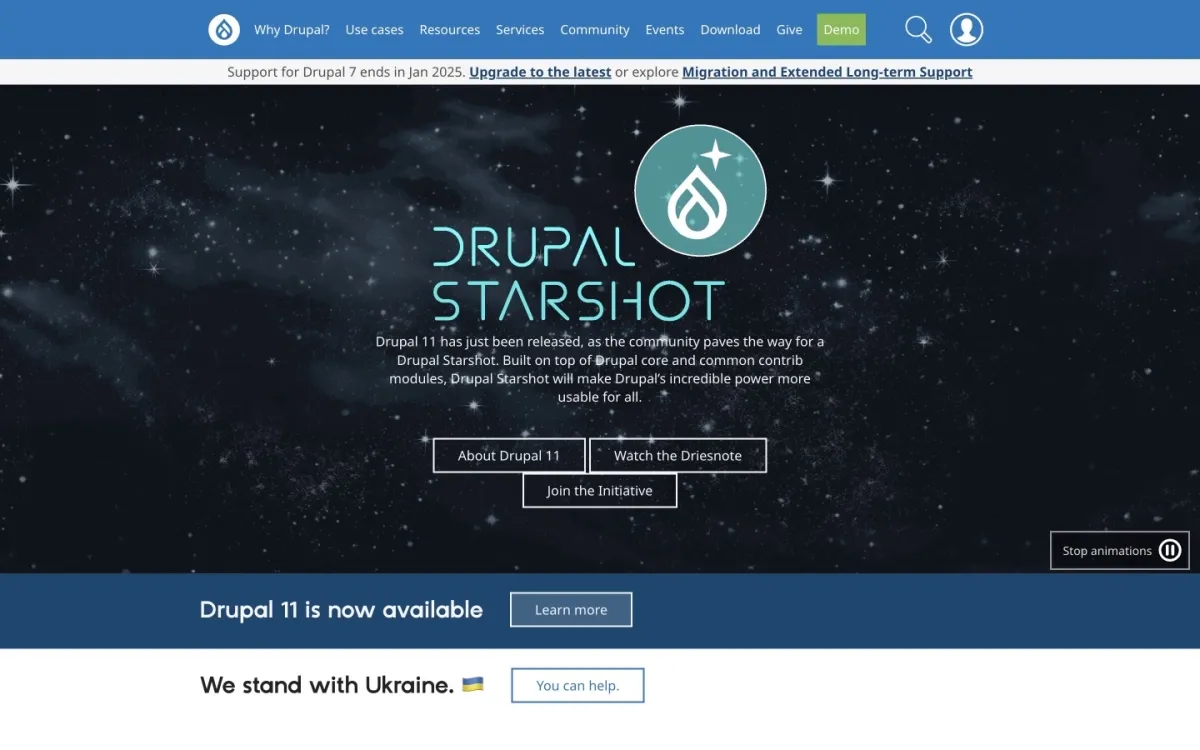
Drupal is an open-source CMS that powers enterprise-grade websites with customizable content structures, extensive user permissions, and advanced APIs for seamless integrations. Its modular architecture supports tailored solutions, from content-rich sites to complex applications, offering flexibility and control.
- Government Websites: Secure, scalable content management.
- Corporate Websites: Centralized content for large organizations.
- Community Platforms: Robust user management for forums and networks.
 Made by
Made by